- Andersons’ consultants are continuing to support their clients during the pandemic. If you require any advice, please contact your usual consultant, or the office on 01664 503200 or email [email protected].
- The Environment Bill has passed the Committee stage in the House of Commons. It now moves on to the House of Lords. However, due to a lack of Parliamentary time, the passage of the Bill will be delayed until the start of the next session in May. It is now expected to become law in the autumn.
- All parts of Great Britain have published their cross-compliance guidance for 2021. In all countries the requirements are pretty-much identical to those for 2020. The main change is how the rules and inspections are enforced – with Brexit there is now more flexibility on how the inspection regime operates. The English guidance can be found at – https://www.gov.uk/guidance/cross-compliance-2021; the Welsh version at – https://gov.wales/cross-compliance-2021. Defra has also published a useful list of what is required at a cross-compliance inspection this can be found at Cross compliance inspections: information needed for an inspection – GOV.UK (www.gov.uk)
- The Seasonal Agricultural Workers Scheme (SAWS) will be extended to 30,000 places for 2021. The Government has announced the Pilot scheme, which ran with 2,500 places in 2019, and 10,000 in 2020 will be extended, and expanded, for the coming year, but the numbers still fall short of the estimated 80,000 seasonal workers required.
- Defra has launched a consultation on the rules surrounding Gene Editing (GE) which could see approvals made easier. It is Defra’s view that organisms produced by GE or by other genetic technologies should not be regulated as GMOs (as is the case now under retained EU legislation) if they could have been produced by traditional breeding methods. Brexit allows the UK to change this legislation. The consultation can be found via https://consult.defra.gov.uk/agri-food-chain-directorate/the-regulation-of-genetic-technologies/. Responses by Wednesday 17th March 2021.
- Defra has authorised the emergency use of neonicotinoids on sugar beet seed in 2021. The authorisation is for the use of Syngenta’s Cruiser SB seed treatment in England only, once a threshold for virus levels has been reached. The emergency authorisation has strict conditions attached including:
- the application rate will be below the normal commercial rate
- no flowering crop is to be planted within 22 months of the sugar beet crop, with no oilseed rape crop to be planted within 32 months of the sugar beet crop
- an industry-recommended herbicide programme must be followed to limit flowering weeds in and around the sugar beet crop.
- The UK sugar industry faces increased competition after it was confirmed the Government’s proposed Autonomous Tariff Quota allowing imports of 260,000 tonnes of raw sugar per year without having to pay the UK’s import tariff of £280 per tonne will be enacted. This is likely to increase price pressure in the UK market as low-cost cane sugar competes with UK beet. The Government argues that this volume will merely replace sugar imports from the EU. With the Brexit deal, however, then EU sugar can continue to come into the UK tariff-free too.
- With the UK-EU Trade and Cooperation Agreement (TCA) (Brexit trade deal) in place, attention is shifting towards Free Trade Agreements (FTAs) with non-EU countries. The TCA was largely about protecting what was already in place – i.e. the significant trade between the UK and the EU. Therefore, the agreement largely preserves the status quo and has had little effect (so far) on markets. Attention is now turning to the new deals the UK might sign with other countries. This would see a change in the trading environment – and an effect on prices. From an agricultural perspective, the most notable of these are the US, Australia and New Zealand. The negotiations which are most likely to conclude in 2021 are those with Australia and New Zealand. Both countries are major exporters of beef and lamb, dairy products and wine. Admittedly, imports of beef and lamb from both countries into the UK and EU have been below historic levels recently (supporting current strong prices). This is mainly a function of a greater emphasis being placed on the Asia-Pacific region, particularly China which is struggling with African Swine Fever. However, if the UK agrees an FTA with these countries it will lower trade barriers significantly and make the UK a more attractive destination. Longer-term, it is inevitable that the UK will seek FTAs with other countries. Chief amongst these would be Mercosur, which includes Brazil and Argentina – two farming powerhouses.
- Vydate has not been re-authorised for use in the UK as from 31st December 2020. The pesticide, can no longer be used, sold or distributed in the UK. The decision was made just one week before authorisation ended and only gives until February 28th 2021 to dispose of any product.
- Defra has announced the Countryside Productivity Small Grants Scheme Round 3 claim deadline has been extended by two months. Applicants now have until midnight on the 31st May 2021 to buy and install all their items, and submit their claim for payment.
- Country Stewardship (CS) applications are expected to open shortly. Whilst ELM is being piloted the CS scheme will remain open to new applications and those that go into CS will not be penalised if ELM is ‘better’. The RPA has stated ‘no-one in a CS agreement will be unfairly disadvantaged’ as the transition to ELM takes place. Those who enter a CS agreement from 2021 onwards will be able to end their agreement, at agreed points, where they have secured a place in ELM. A new objective for CS from 2021 will be air quality, with the aim to reduce ammonia emissions from agriculture. Under a new Capital Grants offer, existing options that improve air quality such as slurry store covers or planting tree shelter belts are expected to be available as a stand-alone capital agreement, in priority areas, together with two new capital items – automatic floor scrapers and low emission flooring for livestock housing. Further details are expected in the new CS 2021 manual, which is expected shortly and we hope to be able to feature this in next month’s Farming in Focus Spotlight. With BPS payments starting their phase out this year, many are taking another look at CS. Our consultants are experienced in drawing up applications which ‘work’ for their clients. If you would like to discuss a CS application, please find the ways to contact us at the beginning of this briefing note.
This month’s Spotlight looks at the recently released Farm Business Income figures. These are broken down by farming sector and for each one, into 4 profit areas, showing just how reliant the land based sectors are on the BPS money. Click Here for further information.
If you would like more detail on the topics covered above, why not subscribe to Andersons’ AgriBrief Bulletin? Over the course of each month, we give a concise and unbiased commentary on the key issues affecting business performance in the UK agri-food industry, and its implications for farming and food businesses. Please click on the link below for a 90-day free trial:



